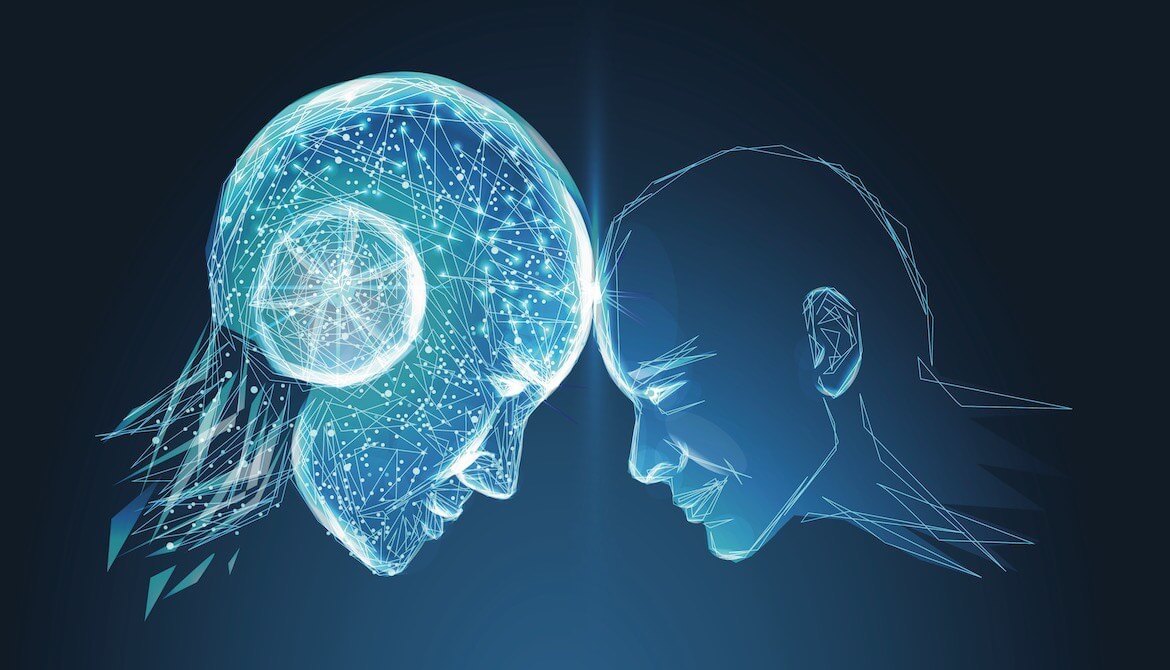“Siri, please write my SCIE 300 blog post for me.” Unfortunately, Siri does not yet have the capability to form conscious thought and respond with an engaging response…but this idea may not be so far-fetched.
In recent studies, Artificial Intelligence (AI) systems from Alibaba and Microsoft performed better than humans on reading comprehension tests. Although this AI innovation threatens to displace some human jobs, the practical applications of this technology in customer service and other professional sectors show extraordinary potential in saving time and human efforts.

Source: https://cumanagement.com/sites/default/files/2018-09/AI-human-heads.jpg
In the study, AI machines were subjected to Stanford University’s SQuAD, a reading comprehension test based on Wikipedia articles. Humans scored an average of 82.304, while Alibaba’s machine learning model scored 82.44 and Microsoft’s scored 82.65. I found this innovation interesting because reading comprehension is a complex task involving language understanding, critical thinking, and problem solving. The thought of computers surpassing humans in these areas both scares and fascinates me.
Alibaba’s AI software is a deep neural network model based on Natural Language Processing (NLP) using the Hierarchical Attention Network. It can read in order to identify phrases that could contain potential answers. Currently, the model only works well with questions that have clear answers. If inquiries are too vague, or if there are no clearly prepared solutions, the system may not work. Despite these hiccups, the impact of this underlying technology is incredibly widespread. It is already being expanded and utilized in customer service jobs, such as call-centers, food service, retail, and online inquiry management. Alibaba has already employed this technology in its AI-powered customer service chatbot which answers millions of online shoppers’ questions.
After Alibaba and Microsoft announced the ability of their AIs, there has been a looming fear that machines will take over human jobs. This new technology could indeed mean that we could codify routine jobs, even those that require social interaction (like answering customer inquiries) into a series of machine-readable instructions.
As this technological automation occurs, companies may deploy more bot technology, potentially displacing human jobs. However, with the current technology, AIs are not yet capable of fully understanding and responding to customers as a human could, and are thus unable to fully replace most jobs. Entirely new job sectors will also arise as technology develops and grows, especially in fields such as data science and computer engineering. Looking further, this innovation could lead to more advanced bots capable of solving more complex problems, including social and political issues such as climate change or resource allocation.
– Angela Wei
